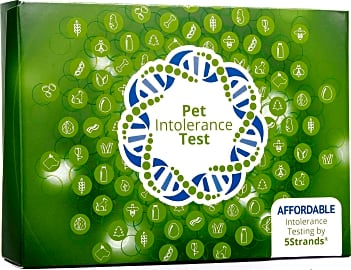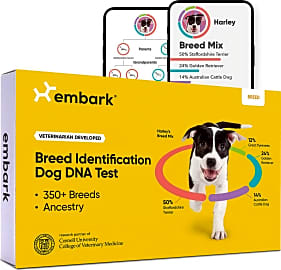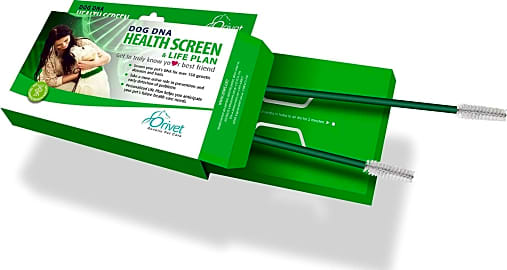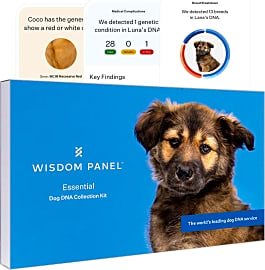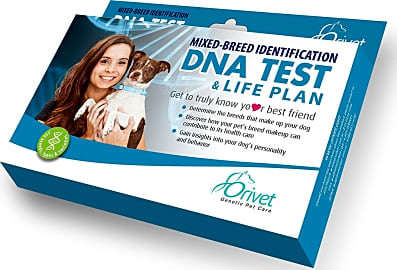The 8 Best Dog DNA Tests

This wiki has been updated 35 times since it was first published in December of 2016. If you're a dog owner, you've probably wondered just exactly what might be lurking in your four-legged friend's gene pool, and whether they'll have certain health or behavioral issues to deal with at some point. These canine DNA tests can provide a detailed breed analysis, test for specific diseases, and provide guidance for customized feeding, training and wellness plans. When users buy our independently chosen editorial recommendations, we may earn commissions to help fund the Wiki.
Editor's Notes
December 15, 2020:
Had to remove the Find My Pet 2.0 due to availability concerns.
We added the Embark Breed ID, which offers all the same breed identification functions as the Embark Health minus the health screening and which is less expensive as a result. We also included the Mars Wisdom Panel Essential, a similarly stripped-down version of Mars Wisdom tests which nonetheless boasts solid all-around features like tests for common diseases and disorders, as well as a test of the MDR1 gene.
We considered adding the DNA My Dog Cheek Swab but decided against it due to the large volume of complaints regarding inaccuracy in testing.
If these Dog DNA tests have got you thinking about your own ancestry, consider buying one of these ancestry DNA tests for yourself or your family members.
November 29, 2018:
Replaced older versions of the most comprehensive panels with the latest advancements, including kits for breed identification and screening for heritable diseases. Added one option strictly for use in troubleshooting genetic tendencies that may underlie certain skin sensitivities and intolerances affecting digestion. Specified which type of screening is included and turnaround times for results.
Just How Well Do You Know Your Dog?
Some breeds are simply more high-maintenance than others, as well, which can help with diagnosing and treating behavioral problems.
Every dog owner likes to think they know their pooch better than anyone else. After all, you know exactly where Fido likes to be scratched, which squeaky toy is his favorite, and why he'll bark at the UPS guy but not the FedEx driver.
Until you know your dog's exact breed or mix, however, you can't say you truly know him. After all, breed plays a large part in canine behavior, so if you don't know this basic fact about your furry friend, how can you hope to understand him? Or more importantly, how can you know which diseases and conditions to which he may be predisposed?
That's why a dog DNA test can be a must-have for any responsible dog owner. Beyond satisfying your curiosity, it can help you be more prepared for your dog's future, whether that means watching what you feed him or being on the lookout for the early warning signs of cancer. Some breeds are simply more high-maintenance than others, as well, which can help with diagnosing and treating behavioral problems. Does your dog need more exercise, or is he craving mental stimulation? Knowing his breed can help you make those determinations.
In fact, many insurance companies and landlords are now requiring canine DNA tests before they'll accept your little buddy. This can be done to weed out potentially aggressive breeds (although the science behind the idea of inherently aggressive breeds is dubious at best), as well as preventing tenants from bringing a hyperactive dog into a tiny studio apartment.
Of course, besides trying to predict the future, knowing your mutt's mix can also improve the time you spend with him now, from picking the game he'll most likely enjoy to finding the perfect dog toy. Your days with your best friend will be even more special if you know he's having as much fun as he possibly can.
And besides, what kind of buddy can you claim to be if you don't even know where your best friend is from?
Finding The Right Test For Your Pooch
The most important thing to consider when looking for a home DNA kit is the size of the database. Simply put, the more doggy DNA the company has stored, the better able it will be to match your pet's genes to its particular breed. The more comprehensive databases can tell the difference between extremely similar dogs, or even if your fuzzy buddy has any wolf in him!
The more comprehensive databases can tell the difference between extremely similar dogs, or even if your fuzzy buddy has any wolf in him!
However, some owners may think they already know what kind of dog they have, and just want to make sure he's as purebred as he's supposed to be. Many DNA testers can not only break the dog's heritage down by percent, but they'll also provide owners with a certificate to back up their findings. This can come in very handy indeed if you're looking to breed your dog at some point down the line. If you're looking towards the future in this regard, you need to make sure that the test you choose can verify purebred bloodlines.
If you're mostly interested in your dog's heritage to satisfy your curiosity or alert you to potential health issues, though, most can identify your pooch's breeds and inform you of any predispositions. Performing the test while your dog is still a puppy is probably your best bet, as well, as it can prepare you for the possibility that your little guy can grow up to be a giant if there's some Great Dane hidden in there.
How A Dog DNA Test Works
The vast majority of DNA tests on the market involve swabbing the inside of the dog's mouth and then mailing the swab back to the company. After a few weeks, the company will mail you back their findings, complete with a host of complementary information (the amount and type of info varies from test to test, however). Some tests will email you the information instead, giving you a quicker turnaround time, but you'll have to print it out yourself if you're the type who likes to show these things off.
These tests are done at a veterinarian's office, so fortunately you don't have to worry about pricking your pooch and having him hate you.
Some of the higher-end models involve drawing blood from your dog's paw, however, and might be able to give you much more detailed health information than the swab variety. These tests are done at a veterinarian's office, so fortunately you don't have to worry about pricking your pooch and having him hate you.
Once you send in your sample, the testing center will store it and add the information to the database. This helps improve accuracy in future results, while also safeguarding the company against people submitting the same samples over and over in an effort to trick the test. As you might expect, each dog's DNA is unique, so the test will flag repeat submissions - and don't even think about trying to slip cat DNA past it, as the examination looks for canine markers that won't show up in other animals.
Regardless of the reason you're interested in investigating Spot's background, learning more about your dog can bring you both closer together, as well as give you a leg up on potential future issues. While many owners might be fine not knowing their dog's heritage, these panels are a fun and easy way to get to know a little more about one of the most important members of your family.



